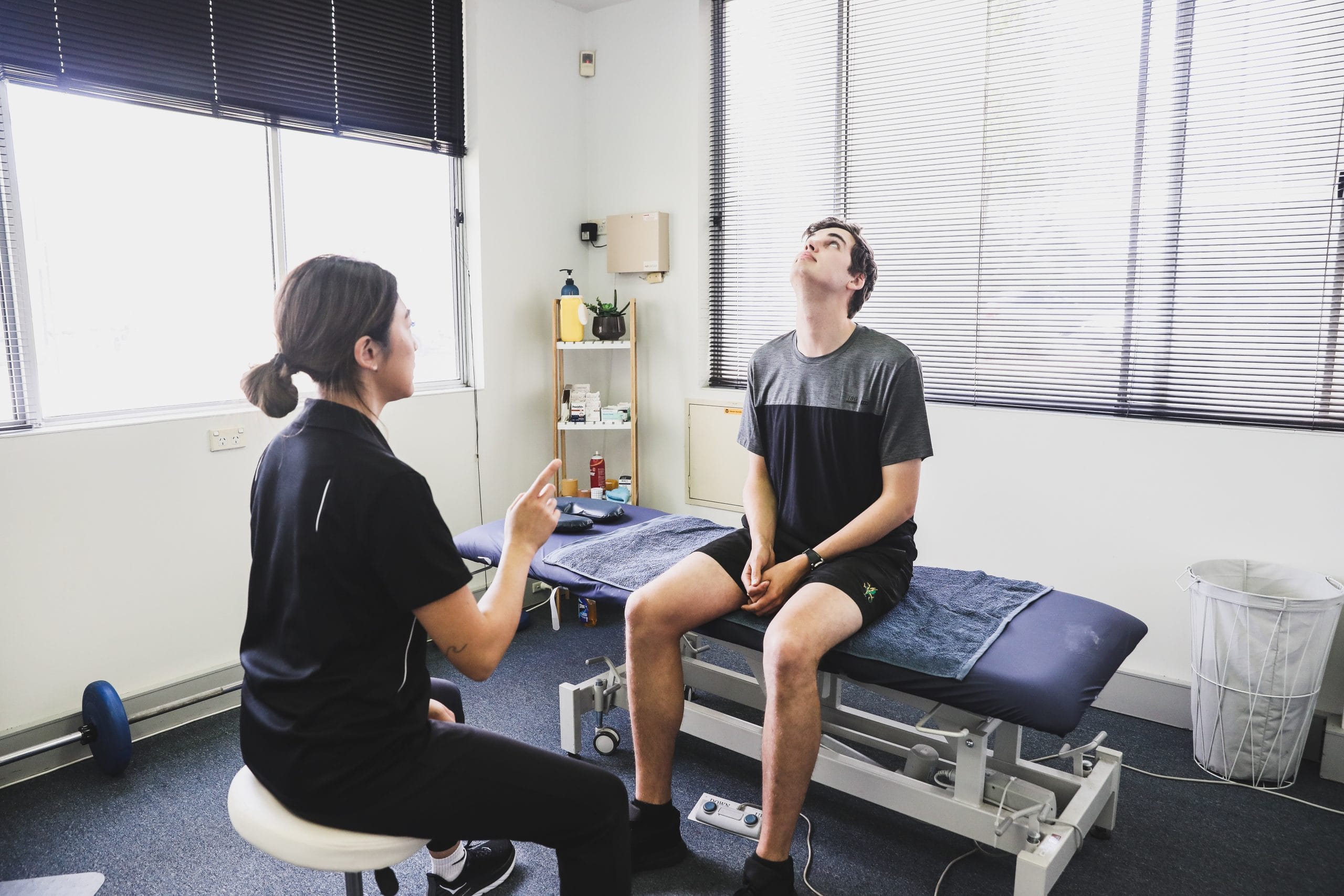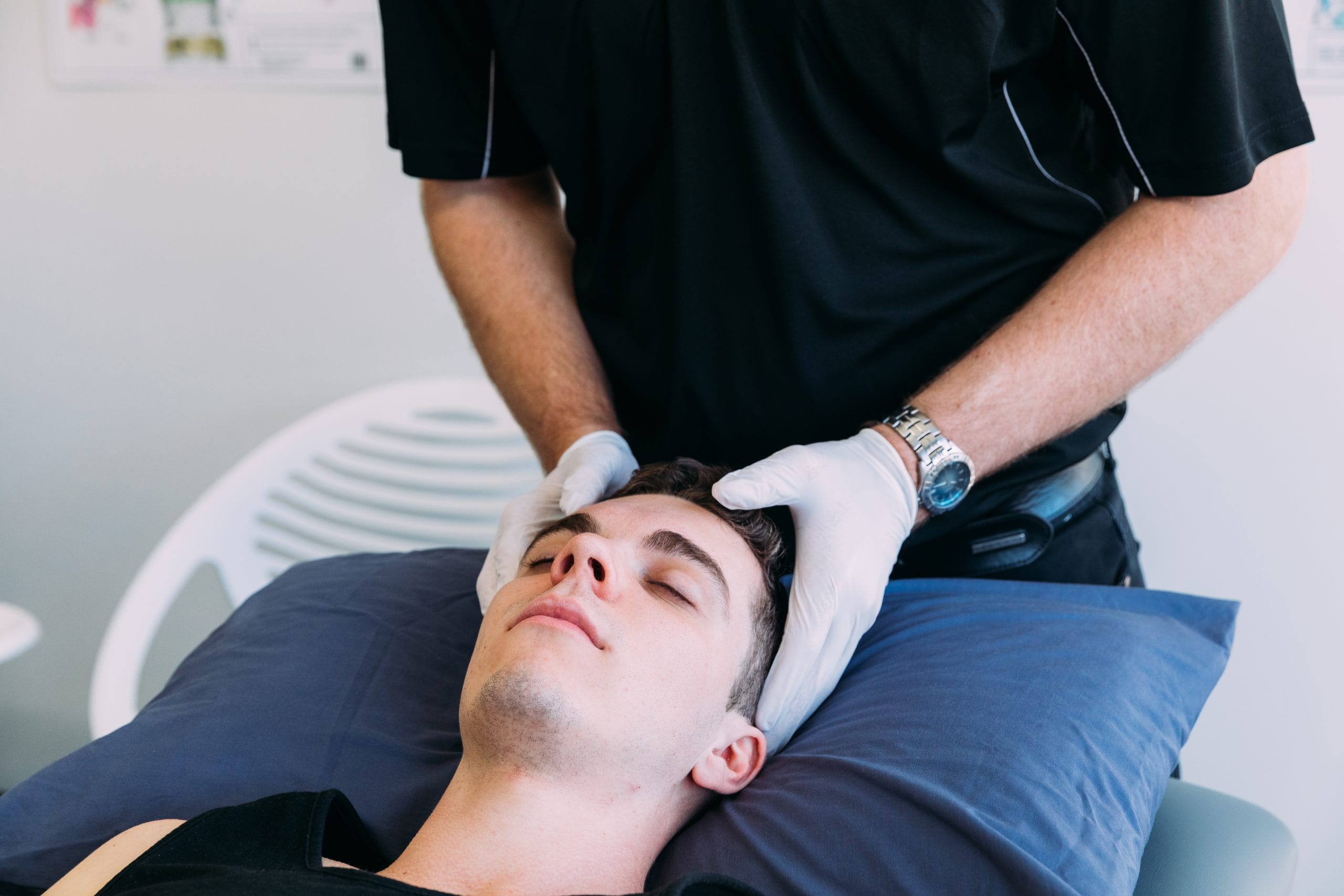
If you’ve ever dealt with vertigo, you’ll know how disruptive it can be to your everyday life. When the world starts spinning, it can be hard to stand, walk, or even think clearly. Understanding what triggers vertigo can be a game-changer, helping you regain control and minimise the impact it has on your day.
What can trigger vertigo, and how can you manage these things more effectively?
Vertigo 101
Vertigo is a sensation where you feel like you’re spinning or the world around you is spinning, often leading to balance issues and nausea. Unlike simple dizziness, vertigo creates a false sense of movement, making standing or walking challenging.
Read more about the difference between dizziness and vertigo.
There are two main types of vertigo: peripheral and central. Peripheral vertigo stems from problems in the inner ear, like Benign Paroxysmal Positional Vertigo (BPPV), Meniere’s disease, or vestibular neuritis. Central vertigo is related to brain issues, like migraines or strokes.
Symptoms can range from mild disorientation to severe spinning sensations, often accompanied by nausea, vomiting, and difficulty maintaining balance.
Common vertigo triggers
Inner ear issues
The inner ear plays a crucial role in maintaining your balance, and issues here are a common trigger for vertigo. Ear disorders that contribute to vertigo include:
- BPPV: Caused by dislodged calcium crystals in the inner ear, BPPV triggers vertigo with head movements like turning over in bed or looking up. It’s treatable with the Epley manoeuvre to reposition the crystals. Read more about BPPV and how to treat it.
- Meniere’s disease: Characterised by fluid build-up in the inner ear, this condition leads to vertigo, tinnitus, hearing loss, and ear fullness. Management includes dietary changes, medications, and physical therapy.
- Vestibular neuritis: Inflammation of the vestibular nerve, often due to viral infections, causes severe vertigo, dizziness, and balance issues.
Migraines
Migraines aren’t just about headaches–they can also trigger vertigo, known as vestibular migraines. This type of migraine can cause intense dizziness, balance problems, and a spinning sensation, even without the typical headache. Episodes can last from a few minutes to several hours.
What triggers vestibular migraines? There are a few things:
- Stress
- Lack of sleep
- Certain foods (e.g. aged cheese, chocolate, red wine)
- Dehydration
- Hormonal changes
Head injuries
Head injuries, including concussions, can significantly impact the vestibular system. The vestibular system, located in your inner ear, helps control balance and spatial orientation. When you experience a head injury, the delicate structures of the inner ear or the pathways that connect the inner ear to the brain can be damaged or disrupted.
Concussions, in particular, can cause post-traumatic vertigo, where the spinning sensation and dizziness persist long after the initial injury. Symptoms might include nausea, difficulty focusing, and a sense of unsteadiness. Proper diagnosis and treatment, often involving vestibular rehabilitation therapy, can help ease these symptoms for a more stable recovery.
Infections and inflammation
Infections and inflammation in the inner ear can trigger vertigo by disrupting the vestibular system. One common condition is labyrinthitis, which is an inflammation of the labyrinth, a structure in the ear. It’s often caused by viral infections, such as a cold or the flu, but it can also result from bacterial infections. This inflammation can lead to sudden, intense vertigo, dizziness, balance problems, and hearing loss.
Symptoms include:
- Vertigo that worsens with movement
- Nausea
- Ear pain
It’s important to get medical treatment as soon as possible to manage infection and reduce inflammation. Treatment will often include antiviral or antibiotic medications, anti-inflammatory drugs, and vestibular rehabilitation exercises to help restore balance and reduce symptoms.
Other triggers
- Medications: Some medications can cause vertigo as a side effect. Common culprits include certain antibiotics, blood pressure medications, and sedatives. If you suspect your medication is causing vertigo, consult your healthcare provider – your doctor may recommend something different, or give you advice on how to manage symptoms.
- Stress and anxiety: Psychological factors like stress and anxiety can exacerbate vertigo. High stress levels can impact the vestibular system, leading to increased dizziness and balance issues. Managing stress through relaxation techniques, therapy, and exercise can help reduce these symptoms.
- Lifestyle factors: Dehydration, excessive alcohol consumption, and certain dietary choices can trigger vertigo. Stay hydrated, limit your alcohol intake, and avoid foods that may trigger vertigo, like caffeine or foods high in sodium.
Read more about how to manage vertigo at home.
When to seek professional help
If you experience frequent or severe vertigo, it’s essential to consult a healthcare professional, such as your GP, or seek out vertigo physio. Signs that warrant medical attention include sudden onset of vertigo without an apparent cause or vertigo accompanied by severe headache, double vision, hearing loss, difficulty speaking, or weakness in your limbs. These symptoms could indicate a more serious underlying condition that requires prompt treatment.
Physiotherapy plays a crucial role in managing vertigo, particularly through vestibular rehabilitation therapy. At Integrity, we develop a personalised treatment plan to address your specific needs. We provide experienced vertigo physio using targeted exercises to improve balance, reduce dizziness, and improve overall stability. By addressing the root causes and triggers of vertigo, we help you regain control and improve your quality of life.
Read more about how a physio can help with vertigo.
Take control of your vertigo
Don’t let vertigo spin your life out of control! Understanding your triggers is the first step toward managing this condition. Book an appointment for an experienced vestibular physiotherapist to start your journey toward balance and stability.



